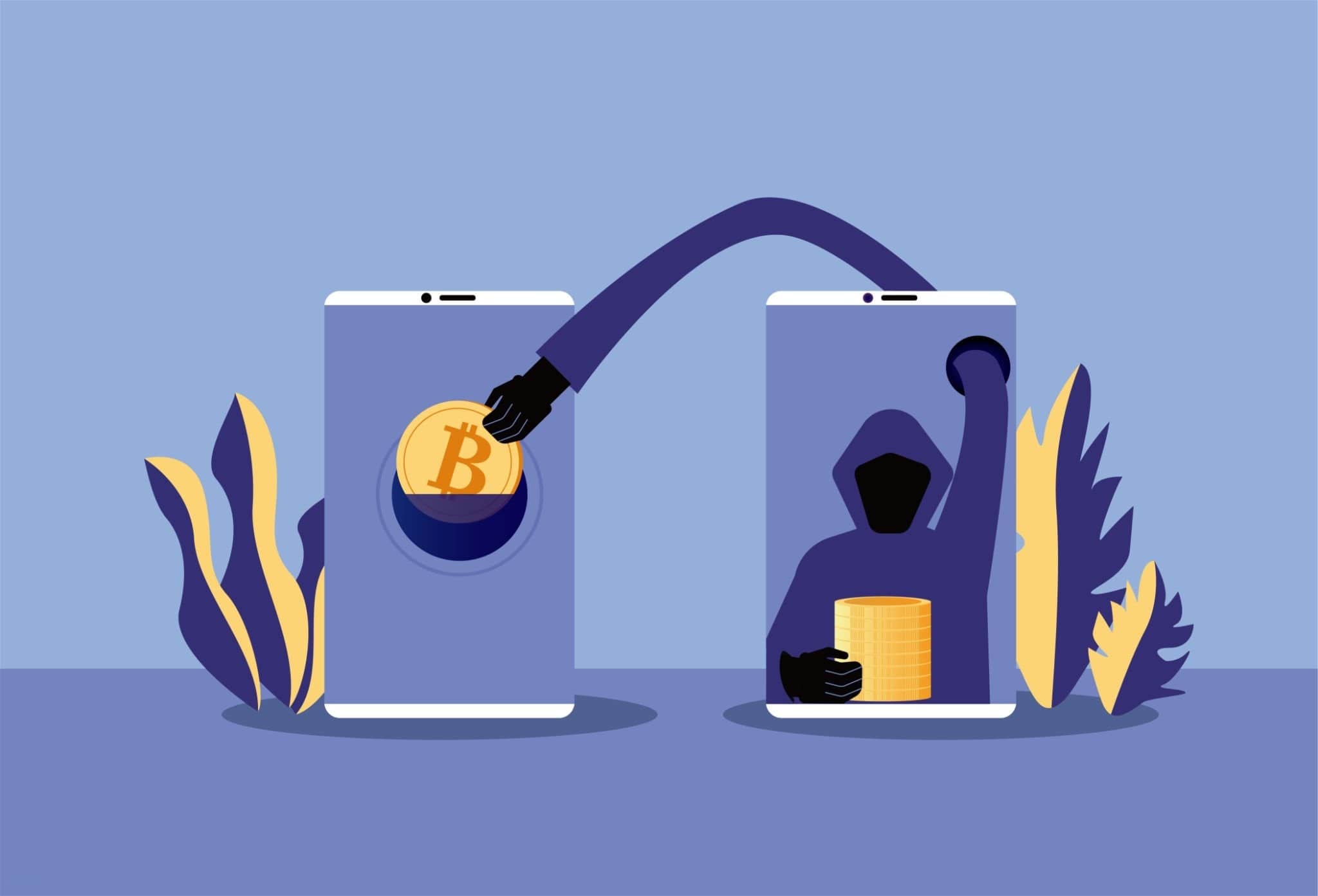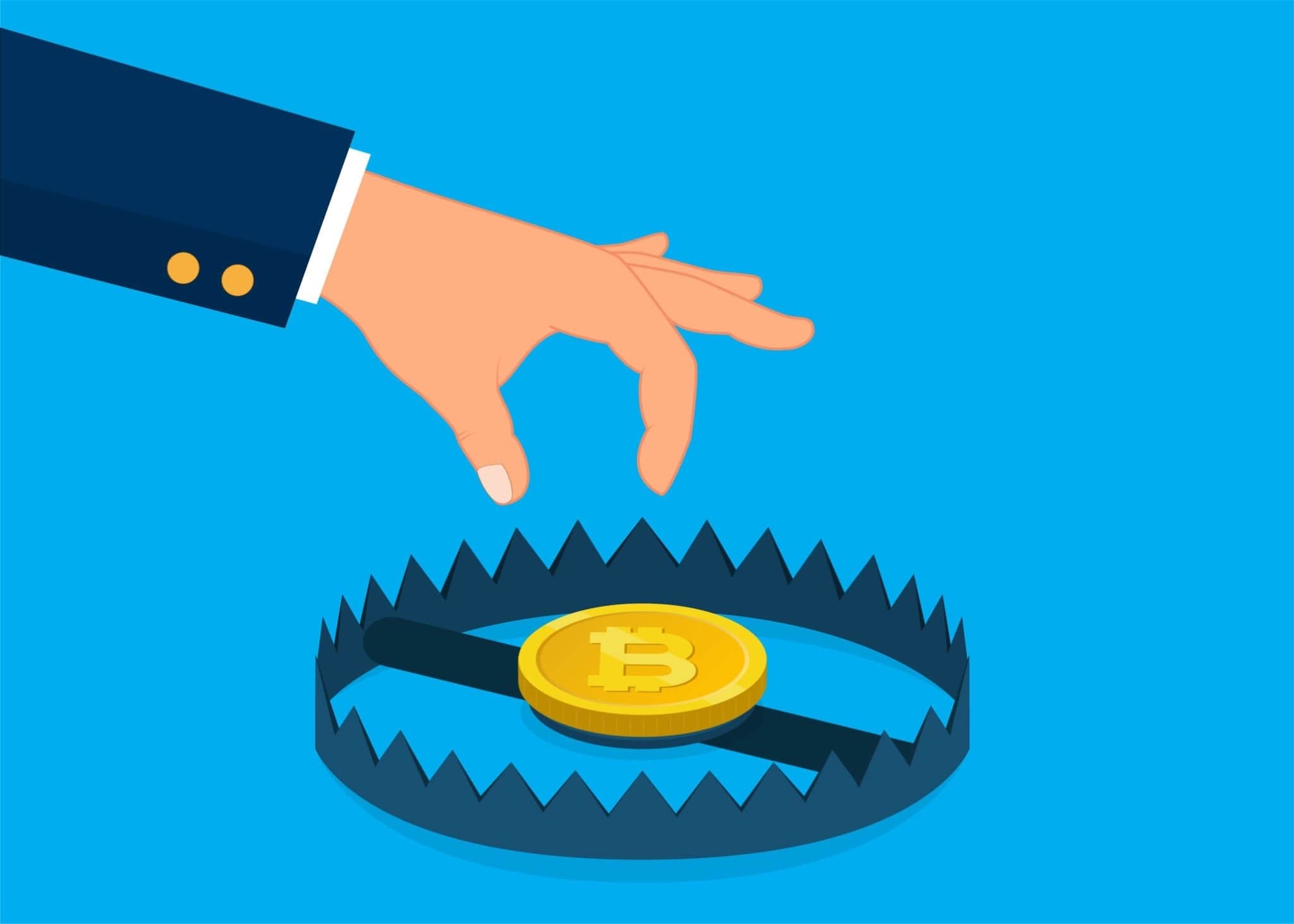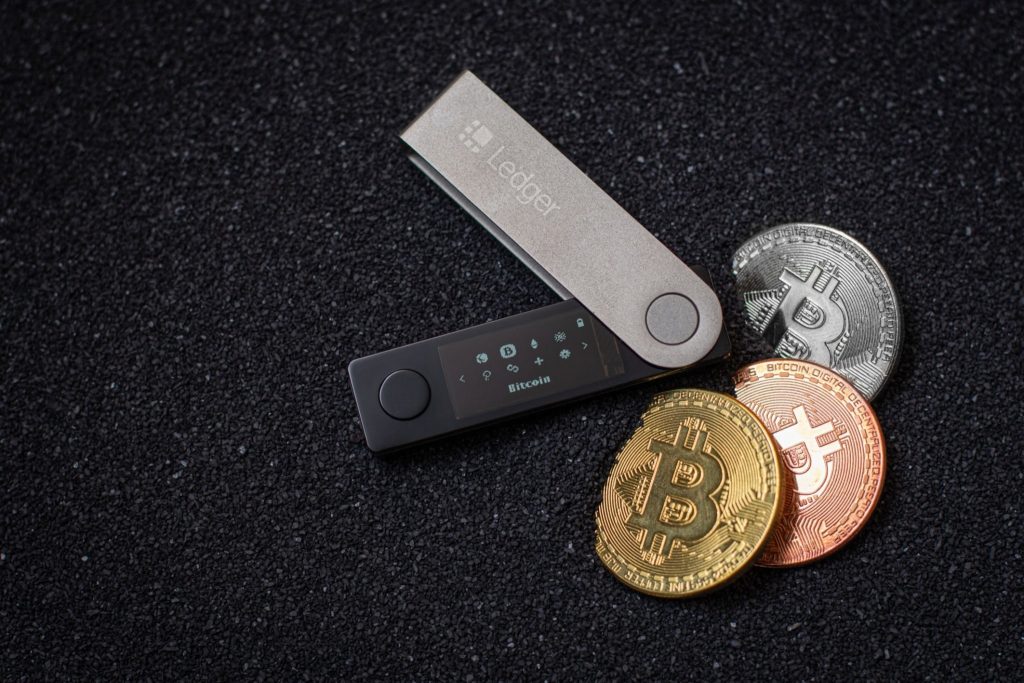Cryptocurrency prices are on the rise and many people are investing in cryptocurrencies for the first time. This presents a great opportunity for investors but also an attractive target for hackers, scammers, and other criminals.
Keeping your funds secure is crucial.
According to a McAfee analysis, over $4 billion in bitcoin was stolen in 2019, with approximately $1.4 billion stolen in the first five months of 2020 alone. The cryptocurrency exchange Liquid was hacked in August 2021, resulting in the loss of roughly $97 million in bitcoin. Another $30 million in Bitcoin and Ethereum was stolen from the North American exchange Crypto.com in January 2022.
As a cryptocurrency investor, it is natural to have questions about how to strengthen your digital security and keep your assets safe from theft. Is it safe to store your cryptocurrency on an exchange or is it better to use a hardware wallet? Is keeping a screenshot of your password a good idea in case you forget it?
These are all important questions that we will address. We will explore how hackers can steal your cryptocurrency and what precautions you can take to make it harder for them to do so. By following security best practices mentioned below when accessing your crypto or buying/selling on blockchain exchange networks, you can protect your cryptocurrency and give yourself peace of mind.
How do Hackers Steal Crypto?
Hackers are constantly on the lookout for ways to access people’s wallets and exploit security weaknesses. They steal cryptocurrency either directly or by tricking victims into giving up their digital assets.

Individuals and businesses that want to invest in cryptocurrencies usually do so through a crypto exchange, which involves opening an account and depositing currency, which is then converted into the desired digital currency.
On exchanges, the cryptocurrency is typically stored in a custodial wallet, where only the exchange has access to the private keys that manage and hold the cryptocurrency.
Crypto exchange networks, like traditional banks, keep a limited amount of cryptocurrency in “hot” wallets to facilitate customer transactions. Hot wallets are designed to store cryptocurrency online, while cold wallets keep the private keys required to access bitcoin offline.
In contrast to centralized banks, current governments lack the financial systems to protect crypto deposits if an exchange is shut down. When a cryptocurrency exchange is hacked, customers have little hope of recovering their digital investments if they are lost or stolen. The nature of blockchain networks makes it nearly impossible to track down the individual or group responsible for the theft.
Common Types of Cryptocurrency Scams
Cryptocurrency scams involve tricking users to gain access to their funds, either directly or through deceit. They often target new users who are transacting with cryptocurrencies for the first time as they are the most vulnerable to their schemes.
The scammers are bold in carrying out their crimes, confident that they can get away with it because of the irreversible nature of cryptocurrency transactions and the anonymous nature of blockchain networks. Fortunately, due to user education campaigns and improved security best practices, the instances of crypto scams are decreasing.
Although there are various types of crypto scams, the following are the most commonly observed:
1. Investment Scams
Investment scams in the cryptocurrency market is a growing concern and often involves hackers creating fake, but highly convincing clones of legitimate cryptocurrency trading platforms.
The hackers may use tactics like bogus advertisements on social media and hiring influencers to promote their fake platform, with the ultimate goal of enticing individuals to deposit their cryptocurrency, which can never be retrieved.

Another form of investment fraud involves scam artists promising a “risk-free” profit in exchange for investment. A red flag to watch out for when evaluating cryptocurrency investment opportunities is the guarantee of returns without any risk of losing money.
It is important to note that due to the volatile nature of cryptocurrencies, any investment is inherently a gamble and there is never a truly “risk-free” investment.
A crucial aspect of evaluating the legitimacy of a cryptocurrency project is to review its whitepaper.
A well-written whitepaper should provide information about the problem the initiative aims to solve, the team behind the project, its implementation and execution plan, token supply and demand, and how the project will be funded. If the whitepaper is confusing, poorly written, or lacks critical information, it is advisable to proceed with caution or avoid the project altogether.
2. Phishing Scams
Hackers often use tactics like sending phishing emails with malware or viruses to gain access to a user’s digital wallet or sensitive information. It is crucial to exercise caution when it comes to clicking on suspicious or spam emails, even if they appear to be from a trusted source.
The sender’s email may have been hacked, and unsuspecting victims may be directed to a fake website that looks identical to a site they frequent. When the victim attempts to log in, their login information is instead shared with the scammer.
To protect against these types of scams, it’s important to be vigilant and avoid clicking on unfamiliar links or entering personal information on unknown websites.
3. Dating Scams
Dating scams, in which hackers impersonate as potential partners on dating apps or websites, are becoming more common. The scammers manipulate the victims by making fake stories and asking for cryptocurrency cash for things such as medical bills.
They may also trick them into participating in bitcoin trading. If the victims don’t have a cryptocurrency account, the scammers guide them in getting one. They can even go as far as advising the victims to download remote access software on their devices, granting the scammers access to their digital investment accounts.
4. Impersonation Scams
Hackers often impersonate reliable company clients in order to steal money. If a trusted client suddenly demands payment in cryptocurrency, or in a different crypto wallet than usual, without proper explanation, it is important to be cautious. This could indicate that their login has been hacked or a fraudster has created a fake online persona and is posing as the client.
To detect these scenarios, pay close attention to details such as changes in the client’s email address, profile picture, or writing style. Impersonation of businesses demanding cryptocurrency payments is a common occurrence in today’s world.
Tips to Protect Your Cryptocurrency from Hackers
Getting straight to the point, let’s discuss some methods to secure your cryptocurrency from digital theft:
1. Use a Hardware Wallet
Online wallets offer fast access to cryptocurrency via the internet, but they are vulnerable to cyberattacks. A hacker who gains access to a user’s investment account can steal all their funds stored in this online wallet.
To mitigate this risk, hardware wallets can be used to securely store crypto coins offline. These wallets use a physical USB like device and a private, encrypted key to access stored digital assets, making them more secure than online wallets and less susceptible to cyberattacks.

Hardware wallets generate transactions through a secure connection to a user’s internet-connected device and have a PIN code, making it difficult for an attacker to steal the crypto even if the wallet is physically lost.
However, if a user loses the password or code to their hardware wallet, they may lose access to their crypto. Advanced techniques like hardware implants, RF signals, and microcontroller memory rewrapping have been used to hack hardware wallets, but only if physical access is obtained. Some good hardware wallets that will last you a lifetime are Ledger and Trezor.
2. Use Paper Wallet
Paper wallets are a low-tech method of securely storing your cryptocurrency. Unlike the wallets provided by exchanges, paper wallets are generated offline and are considered more secure because they are not connected to the internet and are immune to cyber attacks.
The private key, which is the most critical piece of information in a cryptocurrency wallet, is printed on a piece of paper or, in some cases, on a metal strip. This ensures that your private key is not stored online where it could be vulnerable to cyber attacks.
Websites like BitAddress or WalletGenerator allow you to generate a paper wallet, which is a physical representation of your cryptocurrency wallet. The process involves creating a Bitcoin address and private key, which are then printed out. The private key is then deleted from the online wallet and network for added security.
3. Use Multiple Wallets if Possible
It’s recommended to diversify your storage by using multiple wallets with specific purposes. Keeping all your crypto in one wallet increases the risk of losing everything in the event of a cyberattack or security breach.
By having different wallets for transactions and savings, you reduce the likelihood of losing all your crypto in one breach and increase your overall security. This practice also allows for better organization and tracking of crypto holdings and improved management of funds for informed decisions.
Having multiple wallets for different purposes is an effective way to protect your crypto investments.
4. Secure Your Devices & Use a VPN
Personal device security is crucial for users. Keep your device up-to-date with the latest software by setting automatic updates. Ensure both your device and applications are up-to-date. Anti-malware and anti-virus software, as part of endpoint security, provide an essential layer of protection for digital investors.
When dealing with cryptocurrency investments, using a secure private internet connection instead of public WiFi is recommended. A VPN encrypts a user’s online traffic, changing their IP address and location, making it easier to protect users’ online data and browsing activity from third-party intrusion, including hacking attempts.
5. Use Two-factor Authentication
When storing your crypto in online wallets or crypto exchanges, always use two-factor authentication for login. 2FA enhances your account security through dual authentication based on a password, security token, or biometrics. The idea behind 2FA is “knowing and possessing”: you know your password and have a token, push notification, or biometrics, for instance.
When setting up 2FA, you usually choose between SMS or a push notification from a 2FA app like Google Authenticator. Typically, a 2FA app is preferred as it is less susceptible to SIM swap attacks where an attacker can receive the SMS notification if they have your SIM card. If your phone is lost, promptly contact your carrier to deactivate your old SIM card.
6. Beware of Suspicious Email Attachments
Hackers often steal cryptocurrency by tricking users into opening an email that contains a malicious attachment. These emails are often carefully disguised to look like they’re from a reputable organization.
For example, if an attacker discovers that you’re searching for a job, they could send you an email that appears to be from a company offering the exact position you’re interested in. The company name might be legitimate and the sender’s name could match someone who works there, but the email address might be slightly different from the real company’s.
When you open the attachment, malware may install on your computer, allowing the attacker to access your key vault if you’re not using a hardware wallet. They could then try your internet passwords on your wallet in the hope that one of them works, or use various tactics to steal your seed words or get you to voluntarily give them up.
Therefore, it’s crucial to be cautious when someone asks you to download a file over email. Look closely at the email address, as it may have a slight spelling difference or another issue that stands out when closely examined.
Wrapping-up, The crypto market is growing as more people get involved, but the rise in activity also means a rise in cybercrime.
To protect your cryptocurrency, it’s important to implement security measures such as using hardware wallets, strict 2FA usage, avoiding exchanges, backing up seed words, avoiding public WiFi, and using a VPN.
Hackers are constantly finding new ways to steal cryptocurrency, so stay vigilant and aware of new threats. This article will be updated as new threats arise.
Related Posts:
- 9 Simple Steps to Protect Your Personal Information Online
- Are Screen Recorders Safe to Use on Your Computer?
- 10 Ways You Can Keep Your Instagram Account Safe
- How Does Cell Phone Taping Work & How To Bug A Cell Phone?
- Gmail Hacker – Hacking Gmail Account using App
- How To Hack Email? – 4 Effective Ways To Hack Password
- How to hack bitcoin? – How Bitcoin wallet hacking is carried out
